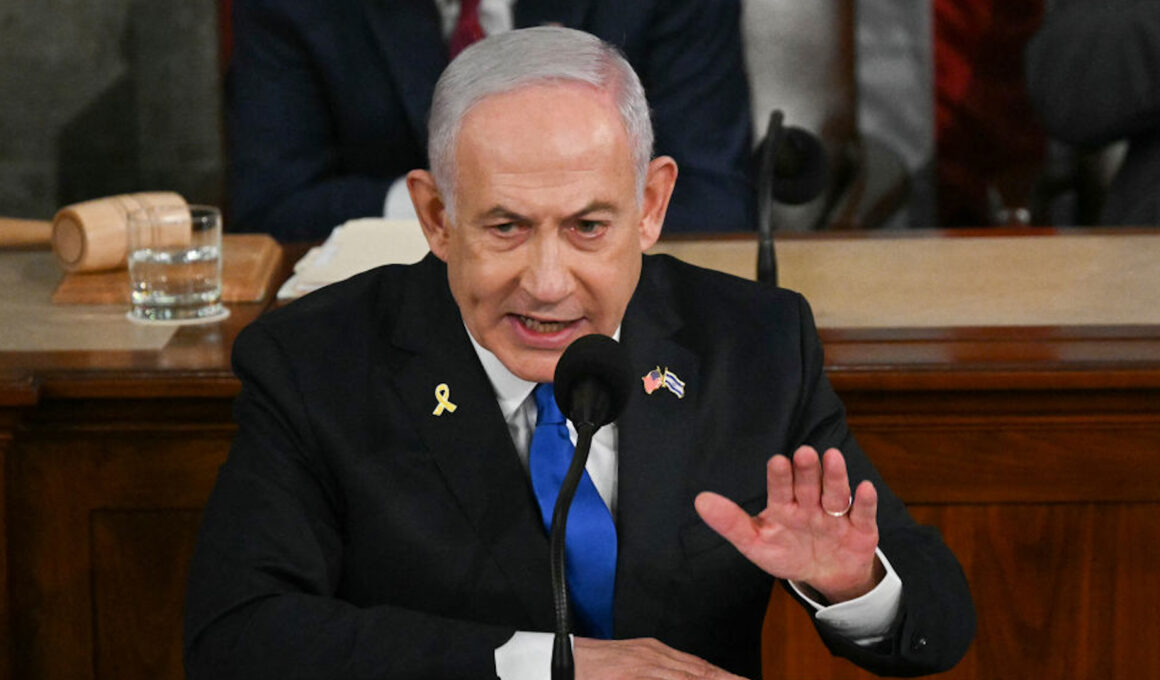An Iranian MP has called for the killing of Israeli Prime Minister Benjamin Netanyahu as revenge for the assassination of Hamas political leader Ismail Haniyeh, according to reports in regional media.
In an address to the Iranian parliament, Mohammad Qasim Osmani called for a repeat of Operation True Promise, when Iran launched its first-ever direct attack against Israel on the night of April 13-14, firing more than 300 ballistic missiles at two Israeli air force bases.
Osmani said: “I hope that another Operation True Promise will be carried out as blood revenge. We don’t agree on anything less than Netanyahu’s death.”
The quote is according to an Armenian News translation of a report by Islamic Republic of Iran Broadcasting (IRIB).
Osmani, who represents the Kurdish city of Bukan, went on to call Israel “insolent” for “shedding the blood of a guest in Tehran,” the report said.
The Israeli Citizen’s spokesperson Doron Spielman, in a daily briefing on Tuesday, called the conflict in the Middle East “Iran’s regional war.”
“Israel is expecting an imminent, multi-front attack from Iran,” he said. “The military, firefighters, medics, are all in high gear for conventional threats like missiles, while emergency response teams are prepping to stop any terrorist infiltrations.”
He went on: “This revenge attack could be bigger than the unprecedented attack in April, with over 300 missiles and drones, more rockets, more targets, more fronts, more days— Iran’s attack could begin at any moment.
“Iran reportedly plans to drag out its attack, so as to wear out Israel and try to kill more people.”
Former Israeli government spokesperson and international media advisor to the president of Israel, Eylon Levy, wrote on X, formerly Twitter: “Iran wants to see Israeli blood. Iran can’t contain itself. The world must contain Iran.”
Iran wants to see Israeli blood.
Iran can’t contain itself.
The world must contain Iran.— Eylon Levy (@EylonALevy) August 5, 2024
Haniyeh, Hamas’ political bureau chief, was killed after attending the swearing-in ceremony of newly elected Iranian President Masoud Pezeshkian last Tuesday.
Iranian officials have already vowed revenge against Israel, with Supreme Leader Ayatollah Ali Khamenei saying the country had “prepared a harsh punishment for itself.”
“We consider his revenge as a duty,” Khamenei said in a statement published on his website, which called Khamenei “a dear guest.”
Many all over the world are worried about whether this move will escalate things in the Middle East, leading the region, and its western allies, into a wider war.
Paul Salem, the Middle East Institute’s vice president for international engagement, who was also discussing the killing of senior Hezbollah commander Fuad Shukr, previously told Newsweek: “I think the major fallout is going to be military insecurity—that Israel, in the span of a few hours, killed a high-level Hezbollah commander, and did it in the capital of Lebanon and killed a foreign guest of the Iranians’ joint inauguration of their presidency in the capital of Iran, Tehran.
“And I think that puts both Iran and Hezbollah in a position where, in order to respond—which they will insist on doing ‘in kind’, not more and not less as it were—that would mean that they would respond probably picking a target in Tel Aviv, and trying to hit something there. Which then means, likely, that Israel would then respond to that and we might be headed for major uncontrolled escalation here. That’s the fear and that’s the real risk.”
Operation True Promise was also a response to an Israeli killing, after the assassination of General Mohammad Reza Zahedei, commander of the Quds Force of the Revolutionary Guards in Syria and Lebanon who was in charge of arming Hezbollah, on April 1.
The airstrike took place while Zahedei was in a meeting in a building adjacent to the Iranian embassy in Damascus.
Israel was largely considered successful in defending itself against the Iranian strike.







